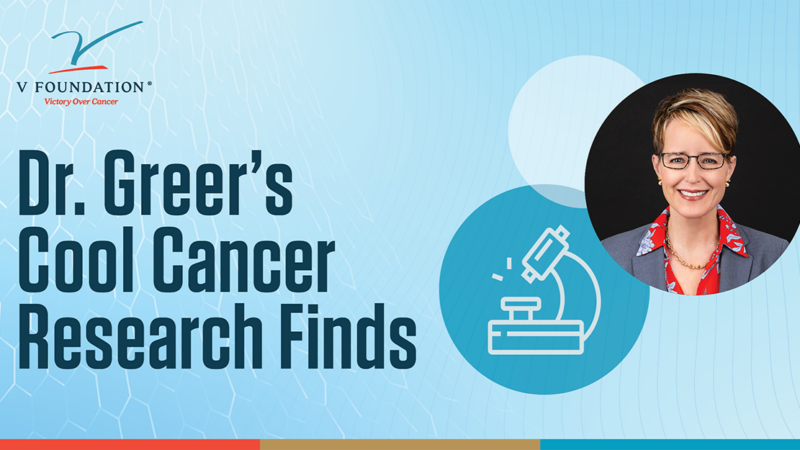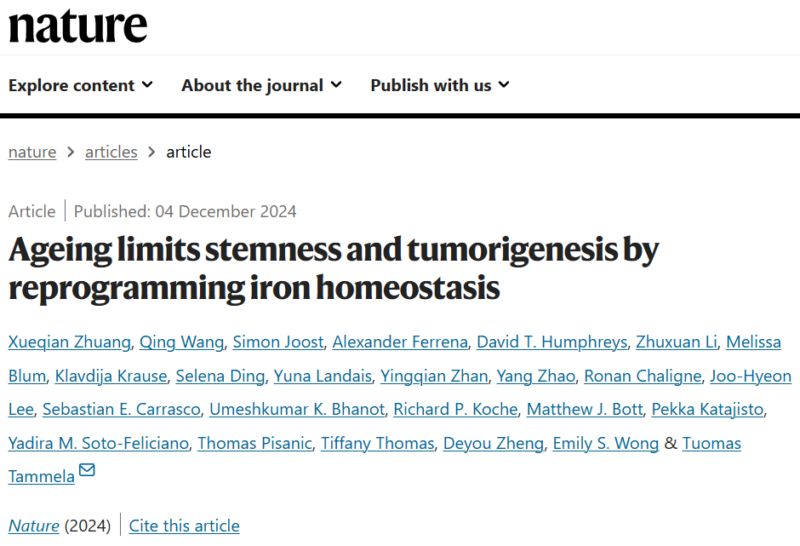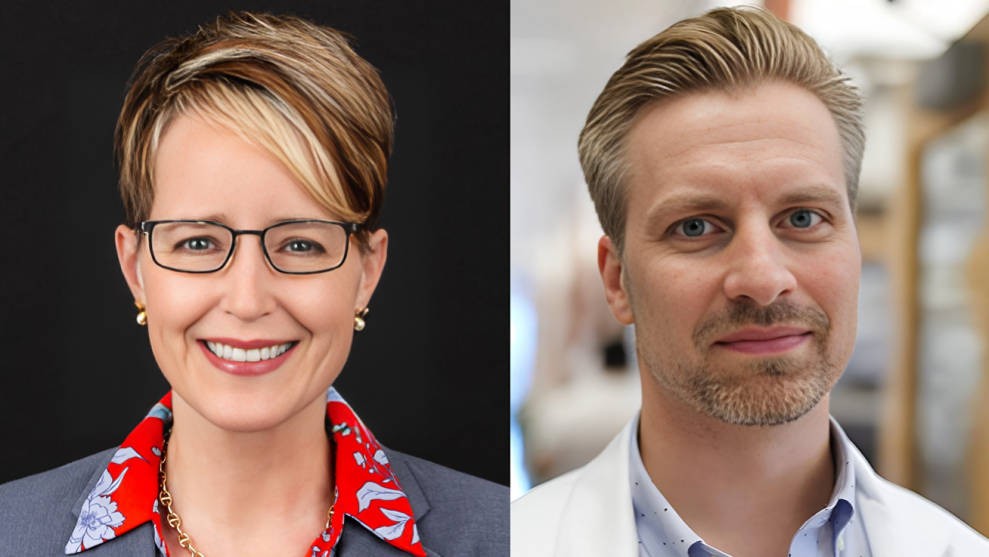Susanna Greer, Chief Scientific Officer at The V Foundation, shared a post on LinkedIn:
“As we approach the New Year, many of us think about resolutions to improve our health, exercising more, eating better, or simply taking steps, big or small, to prevent illness.
Did you know that the seeds of many cancers are planted earlier in life, even as our bodies are built to suppress them as we age?
This week, to close out 2024, I am spotlighting an innovative study funded by the V Foundation from the lab of Dr. Tuomas Tammela, Memorial Sloan Kettering Cancer Center that explores how aging and stem cell health influence lung cancer. Think of stem cells as the “handymen” of your lungs – they repair and replace damaged cells, especially in the air sacs that help you breathe.
When we’re young, these handymen are energetic, skilled, and full of potential. However, as we age, they lose their “toolbox,” becoming less effective at repairs. This loss of fitness actually helps prevent lung cancer by making it harder for these cells to be hijacked by harmful mutations.
But here’s the twist: while aging helps suppress cancer in some ways, the groundwork for many cancers is laid when we’re younger, when our stem cells are most active and vulnerable to genetic changes. These early changes may take decades to transform into a detectable tumor.
The research from the Tammela lab also sheds light on a surprising player in this process: iron. With age, cells lose access to this vital mineral, further reducing their ability to function as stem cells. However, this iron deficiency also creates a protective barrier against cancer. Dr. Tammela and team identified a key pathway, controlled by a protein called NUPR1, that drives these changes.
Targeting this pathway could open the door to exciting new approaches in cancer prevention, regenerative medicine, and even new therapies.
What does this mean for cancer patients?
This research emphasizes the importance of prevention at every stage of life. It reminds me that staying active, eating well, and protecting our lungs, whether from smoking, pollution, or infections, can reduce the risks of those early genetic “seeds” turning into cancer later.
And it also offers hope: understanding how age-related changes in cells protect us could lead to therapies tailored to different life stages, ensuring healthier, longer lives.
As we close the chapter on 2024, I am reflecting on the incredible resilience, determination, and progress made in cancer research this year. Together, we’ve unlocked new insights, developed transformative treatments, and moved closer to a world where every patient has access to the care they need to thrive.
At the V Foundation, our mission is driven by the belief that each step forward, whether it’s a ground-breaking discovery, a moment of hope for a patient, or the tireless efforts of our grantees, matters deeply. This year, we’ve been reminded that innovation is fueled not just by data and research but by collaboration, compassion, and an unwavering commitment to the lives we touch.
As we look ahead to 2025, I hope you will help us carry forward the momentum from this year, the lessons we’ve learned, and the inspiration that fuels the fight we are in (together) against cancer. Here’s to a new year filled with health, hope, and breakthroughs. Together, we can turn today’s challenges into tomorrow’s victories.
Now, need some pleasure reading over the holiday?
Of course you do!
Find a link to this outstanding study here and read about the Tammela lab.

Ageing limits stemness and tumorigenesis by reprogramming iron homeostasis.
Authors: Xueqian Zhuang, et al.



